In
News
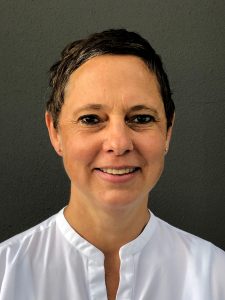
A warm welcome to our new guest Cathrine Bublatzky who joins global dis:connect in early April.
Cathrine Bublatzky is a media anthropologist and senior lecturer at the University of Tübingen.
She was formerly assistant professor at the Heidelberg Centre for Transcultural Studies.
She researches diaspora and exile, archives, visual and digital media cultures, photography, art, activism, and the aesthetics and politics of belonging throughout Europe, South Asia and the Middle East.
Cathrine has been speaker of the DFG Network
Entangled Histories of Art and Migration: Forms, Visibilities, Agents (2018–2022) and author of
Along the Indian Highway: An Ethnography of an International Travelling Exhibition, a monograph published by Routledge.
Her project
Contemporary Photography as Cultural Praxis of Iranians in the European Diaspora, which she will continue at
global dis:connect, was awarded a scholarship by the Baden-Württemberg Foundation.
Continue Reading
 Judd C. Kinzley from the University of Wisconsin-Madison joined global dis:connect in early July.
Judd Kinzley is a professor of modern Chinese history. His research treats borderlands, materiality and natural resources. He is currently working on the transnational exchange of Chinese raw materials for cash, weapons and industrial goods during World War II. This work reveals the transnational networks that developed to finance, produce and transport such resources. These trans-Pacific networks channelled objects in both directions during the war and served as the blueprint of a new postwar international order.
His project at gd:c focuses on the legacies of Allied wartime oil exports to China , the Middle East, SE Asia, the US and the European powers together.
Continue Reading
Judd C. Kinzley from the University of Wisconsin-Madison joined global dis:connect in early July.
Judd Kinzley is a professor of modern Chinese history. His research treats borderlands, materiality and natural resources. He is currently working on the transnational exchange of Chinese raw materials for cash, weapons and industrial goods during World War II. This work reveals the transnational networks that developed to finance, produce and transport such resources. These trans-Pacific networks channelled objects in both directions during the war and served as the blueprint of a new postwar international order.
His project at gd:c focuses on the legacies of Allied wartime oil exports to China , the Middle East, SE Asia, the US and the European powers together.
Continue Reading






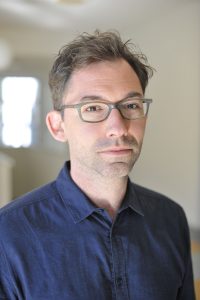 A warm welcome to our new guest Michael Goebel who joins global dis:connect in early September.
A warm welcome to our new guest Michael Goebel who joins global dis:connect in early September.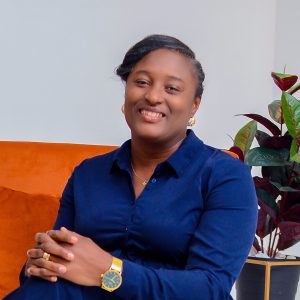 In September Ifeoluwa Aboluwade commenced her term as a fellow at global dis:connect. Welcome.
Ifeoluwa Aboluwade is a literary scholar with a background in imperial and literary history, early modern English theatre, critical digital humanities, (trans)cultural translation and adaptation, black diaspora studies, postcolonial literary criticism, and gender and intersectionality. She works at the Africa Multiple Cluster of Excellence and is a lecturer at the University of Bayreuth. Ifeoluwa has received many international awards and fellowships, such as Fulbright and DAAD scholarships, most recently receiving the Shakespeare Association of America-Folger Shakespeare Library Short Term Fellowship (2022/2023).
At gd:c she is investigating the histories, patterns and genealogies (dis)connecting Shakespearean drama through topoi of trickster and warrior.
In September Ifeoluwa Aboluwade commenced her term as a fellow at global dis:connect. Welcome.
Ifeoluwa Aboluwade is a literary scholar with a background in imperial and literary history, early modern English theatre, critical digital humanities, (trans)cultural translation and adaptation, black diaspora studies, postcolonial literary criticism, and gender and intersectionality. She works at the Africa Multiple Cluster of Excellence and is a lecturer at the University of Bayreuth. Ifeoluwa has received many international awards and fellowships, such as Fulbright and DAAD scholarships, most recently receiving the Shakespeare Association of America-Folger Shakespeare Library Short Term Fellowship (2022/2023).
At gd:c she is investigating the histories, patterns and genealogies (dis)connecting Shakespearean drama through topoi of trickster and warrior. 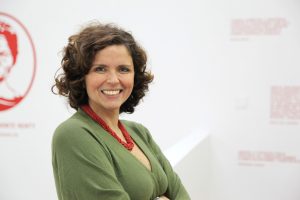 In early July, art historian Sabrina Moura joined global dis:connect as a new fellow. Welcome to Munich, Sabrina!
Sabrina Moura is a teacher, researcher and curator from Brazil. She holds a Ph.D. in art history from the University of Campinas. She authored Arqueologia da Criação [Archeology of Creation, 2022] — a book on the work of Brazilian artist Rossini Perez — and edited Southern Panoramas: Perspectives for other geographies of thought (2015), which presents historical and artistic perspectives on the Global South. Her work has featured in Mousse Magazine, Zeitschrift für Kulturwissenschaften, Stedelijk Studies Journal, African Art, Critical Internventions, 3rd Text Africa, among others.
At global dis:connect Sabrina is developing Cabinet Exotica Performing Absent Agencies from the Dawn of Natural Sciences, a project that focuses on contemporary visual and performative strategies.
In early July, art historian Sabrina Moura joined global dis:connect as a new fellow. Welcome to Munich, Sabrina!
Sabrina Moura is a teacher, researcher and curator from Brazil. She holds a Ph.D. in art history from the University of Campinas. She authored Arqueologia da Criação [Archeology of Creation, 2022] — a book on the work of Brazilian artist Rossini Perez — and edited Southern Panoramas: Perspectives for other geographies of thought (2015), which presents historical and artistic perspectives on the Global South. Her work has featured in Mousse Magazine, Zeitschrift für Kulturwissenschaften, Stedelijk Studies Journal, African Art, Critical Internventions, 3rd Text Africa, among others.
At global dis:connect Sabrina is developing Cabinet Exotica Performing Absent Agencies from the Dawn of Natural Sciences, a project that focuses on contemporary visual and performative strategies. 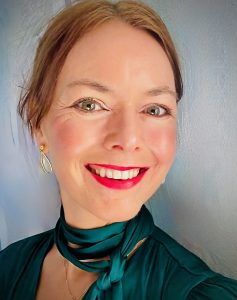 Nic Leonhardt from the University of Cologne joined global dis:connect in early July.
Nic Leonhardt is a theatre scholar and writer commenting on global theatre history; media, popular and visual cultures; and archiving and curating theatrical history. She has served as a senior researcher and fellow in multiple projects. Her latest monograph, Theatre Across Oceans. Mediators of Transatlantic Exchange (1890-1925), was published in 2021. She edits Global Theatre Histories and created the theatre history podcast Theatrescapes.
Nic is co-president of
Nic Leonhardt from the University of Cologne joined global dis:connect in early July.
Nic Leonhardt is a theatre scholar and writer commenting on global theatre history; media, popular and visual cultures; and archiving and curating theatrical history. She has served as a senior researcher and fellow in multiple projects. Her latest monograph, Theatre Across Oceans. Mediators of Transatlantic Exchange (1890-1925), was published in 2021. She edits Global Theatre Histories and created the theatre history podcast Theatrescapes.
Nic is co-president of 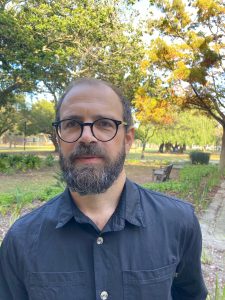 A warm welcome to our new guest Ross Truscott who joins global dis:connect in early June.
A warm welcome to our new guest Ross Truscott who joins global dis:connect in early June.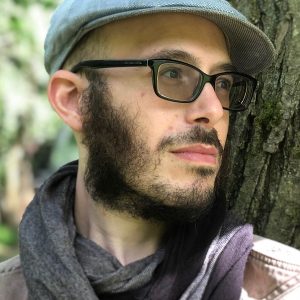 In April, historian Roii Ball commenced his term as a fellow at global dis:connect. Welcome, Roii!
Roii Ball is a social historian of nineteenth and twentieth-century Germany and Central Europe and their colonial entanglements. He is a postdoctoral lead researcher at the Religion and Politics Cluster of Excellence at the University of Münster. Ball earned his PhD from the University of California, Los Angeles in 2021 with a dissertation on the social dynamics and bureaucratic practices of German colonisation in the Polish provinces of Prussia before WWI (Advisor: David Sabean).
Ball’s work focuses on family and kinship to explore histories of colonisation and their intersection with empire-making and nation-making. His research interests include the history of knowledge, history of childhood, environmental history, and digital history. He has held fellowships at the University of Cologne, the German Historical Institute in Warsaw, and the Leibnitz Institute for European History in Mainz. During 2023 and 2024, he will also be a visiting research fellow at global dis:connect.
In April, historian Roii Ball commenced his term as a fellow at global dis:connect. Welcome, Roii!
Roii Ball is a social historian of nineteenth and twentieth-century Germany and Central Europe and their colonial entanglements. He is a postdoctoral lead researcher at the Religion and Politics Cluster of Excellence at the University of Münster. Ball earned his PhD from the University of California, Los Angeles in 2021 with a dissertation on the social dynamics and bureaucratic practices of German colonisation in the Polish provinces of Prussia before WWI (Advisor: David Sabean).
Ball’s work focuses on family and kinship to explore histories of colonisation and their intersection with empire-making and nation-making. His research interests include the history of knowledge, history of childhood, environmental history, and digital history. He has held fellowships at the University of Cologne, the German Historical Institute in Warsaw, and the Leibnitz Institute for European History in Mainz. During 2023 and 2024, he will also be a visiting research fellow at global dis:connect.  A warm welcome to our new guest Cathrine Bublatzky who joins global dis:connect in early April.
Cathrine Bublatzky is a media anthropologist and senior lecturer at the University of Tübingen.
She was formerly assistant professor at the Heidelberg Centre for Transcultural Studies.
She researches diaspora and exile, archives, visual and digital media cultures, photography, art, activism, and the aesthetics and politics of belonging throughout Europe, South Asia and the Middle East.
Cathrine has been speaker of the DFG Network Entangled Histories of Art and Migration: Forms, Visibilities, Agents (2018–2022) and author of Along the Indian Highway: An Ethnography of an International Travelling Exhibition, a monograph published by Routledge.
Her project Contemporary Photography as Cultural Praxis of Iranians in the European Diaspora, which she will continue at global dis:connect, was awarded a scholarship by the Baden-Württemberg Foundation.
A warm welcome to our new guest Cathrine Bublatzky who joins global dis:connect in early April.
Cathrine Bublatzky is a media anthropologist and senior lecturer at the University of Tübingen.
She was formerly assistant professor at the Heidelberg Centre for Transcultural Studies.
She researches diaspora and exile, archives, visual and digital media cultures, photography, art, activism, and the aesthetics and politics of belonging throughout Europe, South Asia and the Middle East.
Cathrine has been speaker of the DFG Network Entangled Histories of Art and Migration: Forms, Visibilities, Agents (2018–2022) and author of Along the Indian Highway: An Ethnography of an International Travelling Exhibition, a monograph published by Routledge.
Her project Contemporary Photography as Cultural Praxis of Iranians in the European Diaspora, which she will continue at global dis:connect, was awarded a scholarship by the Baden-Württemberg Foundation.